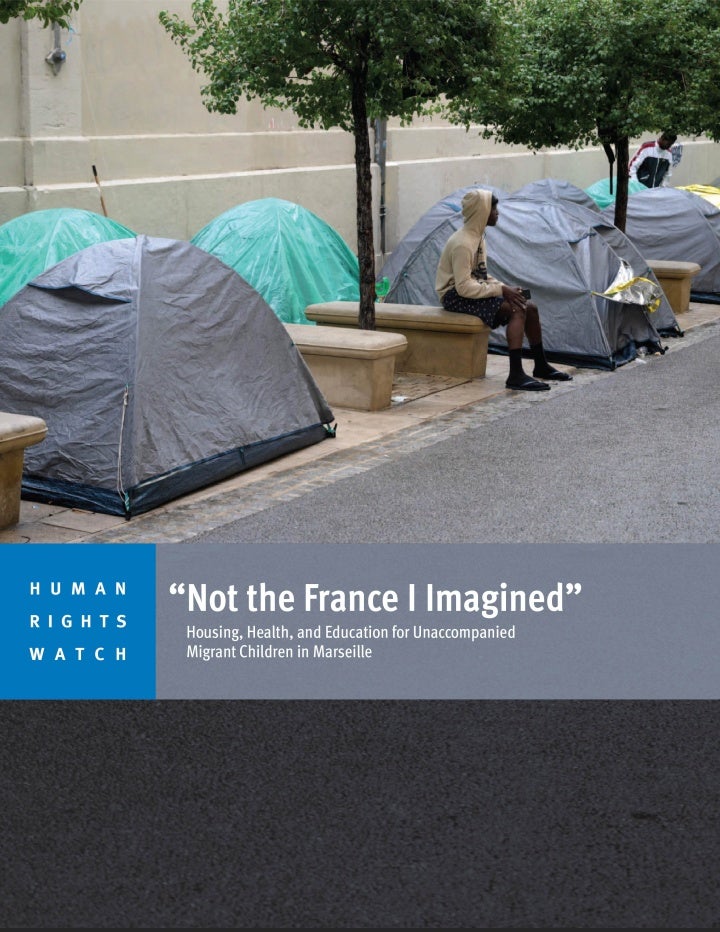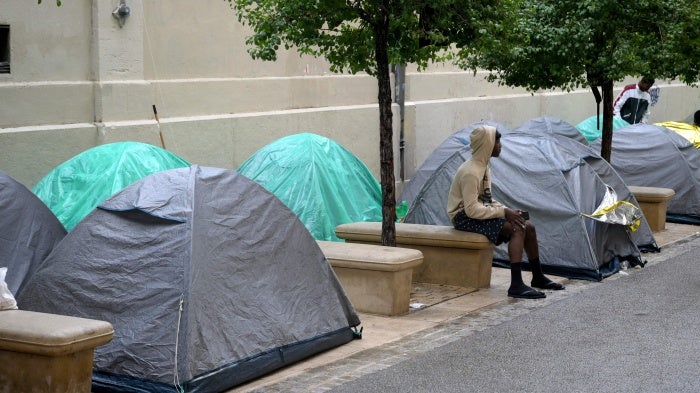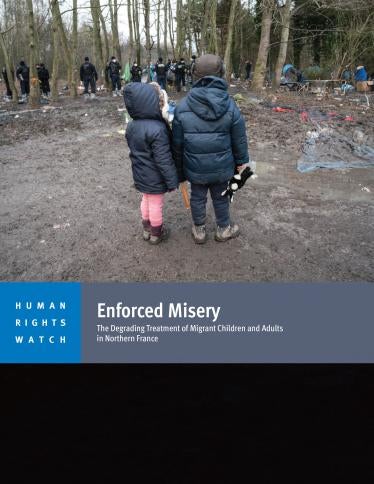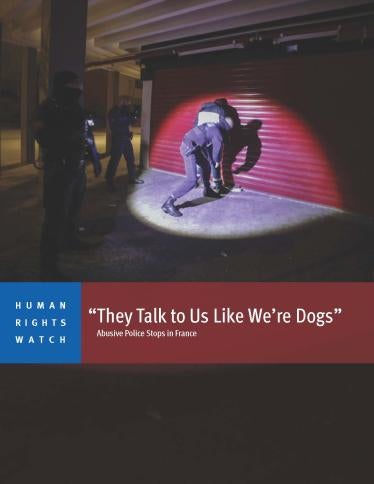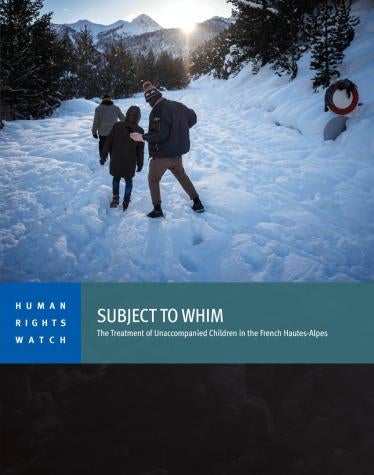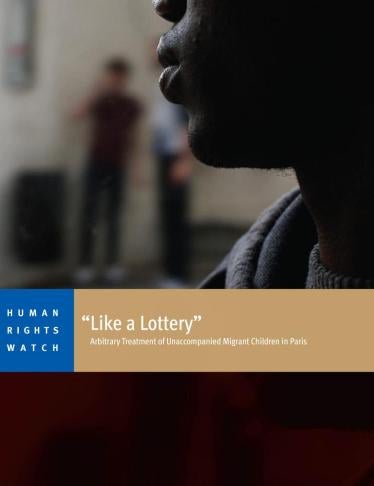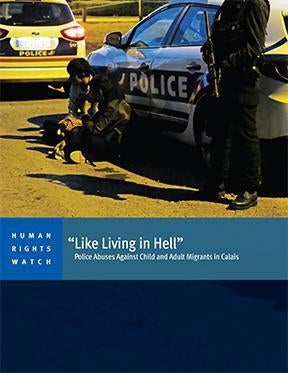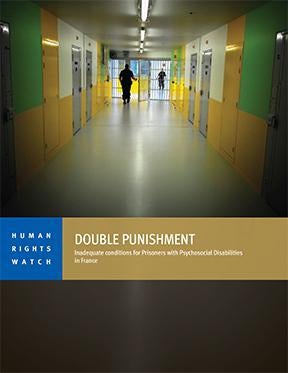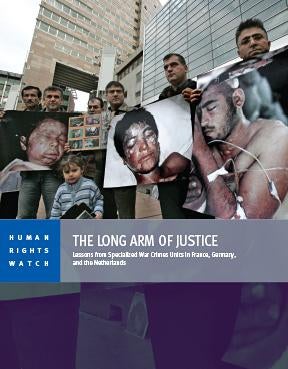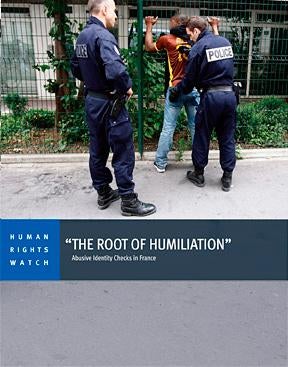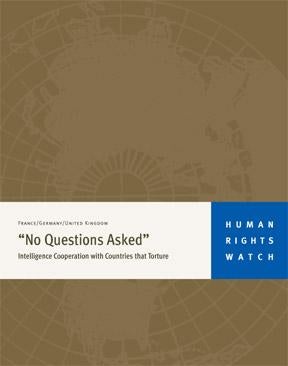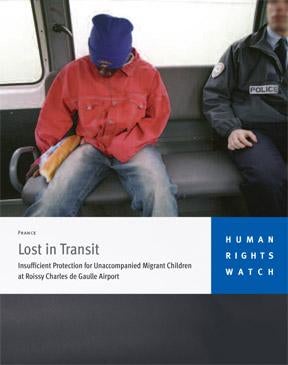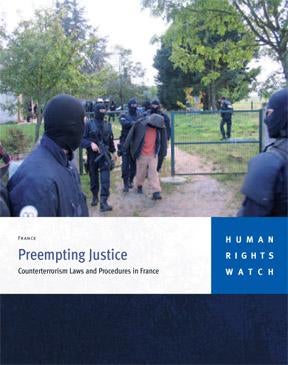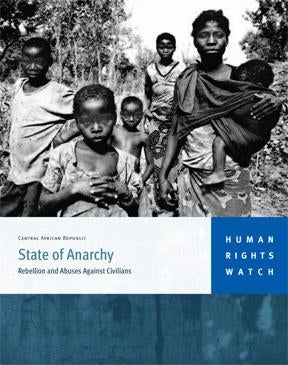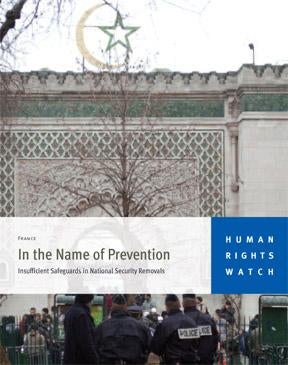“Not the France I Imagined”
Housing, Health, and Education for Unaccompanied Migrant Children in Marseille
The 70-page report, “‘Not the France I Imagined’: Housing, Health, and Education for Unaccompanied Migrant Children in Marseille,” finds that Marseille’s child protection authorities are leaving children with health needs on the street without treatment, psychosocial support, or follow-up care. Half of unaccompanied migrant children who face an age assessment in Marseille are denied formal recognition as a child, yet those decisions are overturned for nearly 75 percent of those who file an appeal. Review by the courts can take months or even years, leaving children ineligible for emergency accommodation and services such as legal assistance, the appointment of a guardian, universal health protection, and education.
